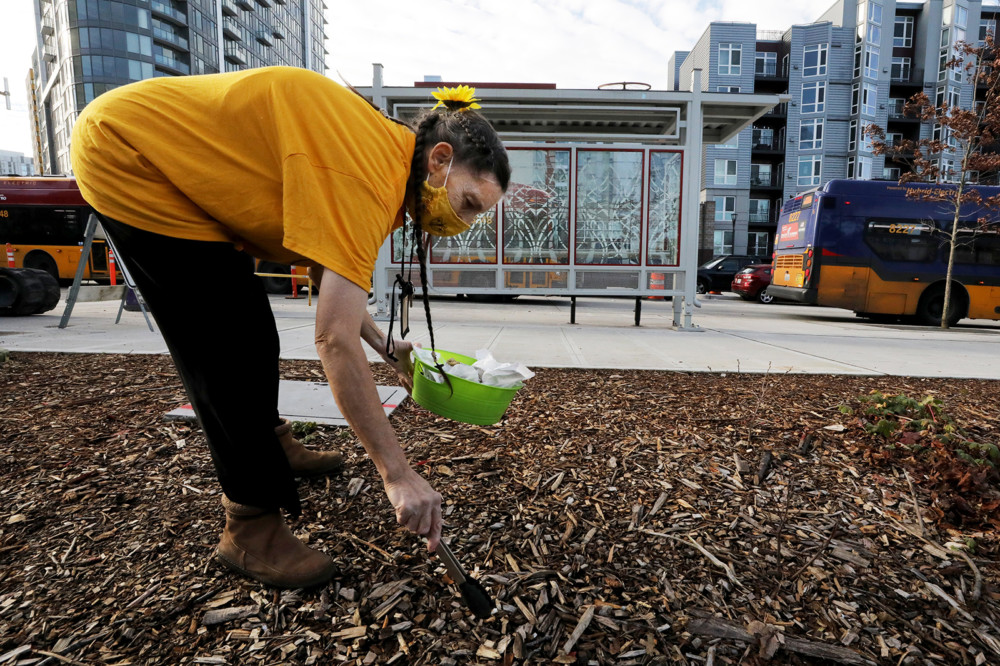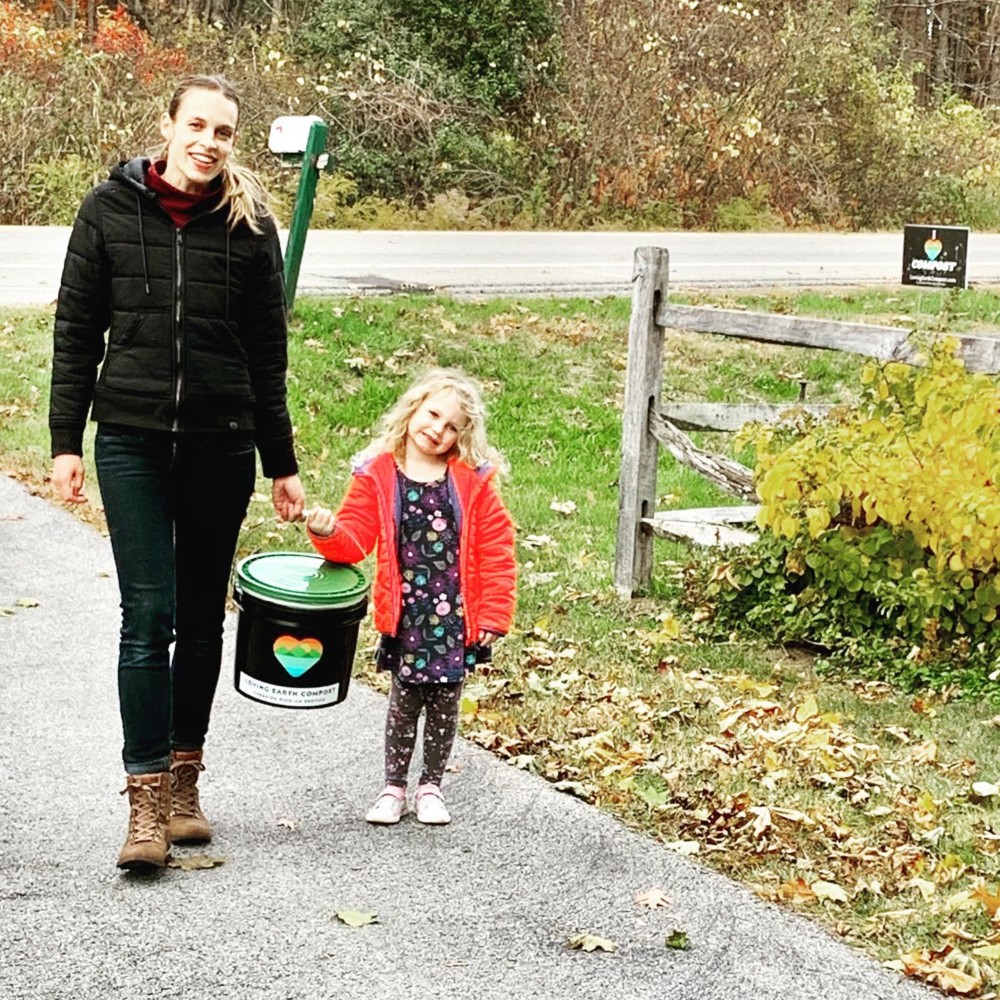Michelle Baruchman
The Seattle Times
WWR Article Summary (tl;dr) The appearance and condition of transit stops matters to Pauline Van Senus, who calls herself the “Transit Fairy” and rides a bus everywhere she goes.
Seattle
Pauline Van Senus loves talking trash.
On a recent day, Van Senus sifted through mulch behind a bus stop along Seattle’s Seventh Avenue North to find cigarette butts, food scraps and discarded wrappers while explaining her painstaking process for picking up garbage.
Van Senus has been cleaning up trash around bus stops and other public spaces off and on for years — in addition to working as a house cleaner, she said. But since the coronavirus pandemic limited her paid job, she has cleaned transit stops a few times each week, depending on the weather, for about an hour at a time.
“My goal is to make bus stops comfortable for everybody,” she said. “Seattle is my hometown. I want it to be beautiful.”
The appearance and condition of transit stops matter to Van Senus, who calls herself the “Transit Fairy” and rides a bus everywhere she goes. It takes her about 90 minutes by Metro to get from her home in White Center to South Lake Union, where she often goes to pick up trash. She also cleans bus stops in her neighborhood around Southwest Roxbury Street and the Westwood Village shopping center.
Van Senus, 63, is a longtime member of the Transit Riders Union and advocated for the ride-free zone in downtown Seattle that ended in 2012.
“Pauline is a great example of someone who feels a responsibility to the wider community and to the transit system that we all fund and share,” said Katie Wilson, Transit Riders Union general secretary.
More funding for keeping public transit sanitary is needed, Wilson said, but with the pandemic-related recession and low ridership bringing in less revenue, transit agencies are struggling.
“Someone who devotes so much to time and energy to volunteering and giving back” should be commended, she said.
Jeff Switzer, a spokesperson for King County Metro, said “it’s amazing when riders and community members pitch in.”
Metro crews clean and maintain about 7,500 bus stops throughout the county based on need and use, he said.
“Beautifying and maintaining bus stops is something that benefits all our riders, and we’re honored by her efforts and appreciate how she is giving back to the community we all serve,” Switzer said.
Like a fictional fairy godmother tending to the earth, Van Senus typically wears wings with Transit Riders Union’s gold and black colors. Her backpack is decorated with butterflies around the words “Transit Fairy on Board.”
She wears a silk sunflower in her braided hair and sets similar flower adornments at her work sites to “visualize the goal, what a beautiful station could look like,” Van Senus said.
She uses kitchen tongs to pick up discards and place them into a small container or plastic bags before depositing them into a nearby trash can. She puts sharp objects into a Pringles can or water bottle with a lid to protect herself from getting poked or cut. She uses a knife with a curved blade to remove debris caught between cracks in the sidewalk.
Van Senus comes to this work through training and an altruistic spirit.
buy stromectol online https://gaetzpharmacy.com/stromectol.html no prescription
“I have a service streak, but I never really knew how to be involved,” she said.
She always thought she would be a nurse like her mother but studied gardening and floral design at South Seattle College, which allowed her to combine her passion for art and the Earth. She had trouble finding work in those fields earlier in life. The pandemic has now left her with more time to volunteer.
Van Senus uses a cane because a few years ago her “leg went wonky,” she said. She has carpal tunnel syndrome in her wrists, and after an hour of work, she gets sore from bending down.
That means cleaning an area can be a multiday project. “The first time you go, you feel like you’re never going to get anywhere,” she said.
As she wrapped up a recent visit to South Lake Union, Van Senus said she reached the “point of no return — but in a good way.” Although she kept spotting more trash to pick up, she looked around and felt good about her efforts.
___
Distributed by Tribune Content Agency, LLC.
















































































































































































































































































































































































